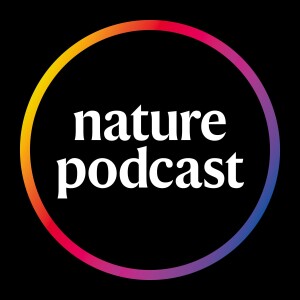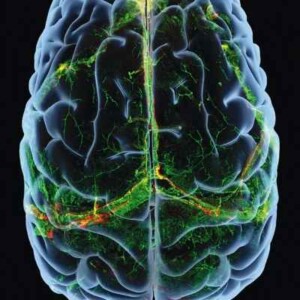In this episode:
01:28 Inflammation’s role in memoryHow memories are stored is an ongoing question in neuroscience. Now researchers have found an inflammatory pathway that responds to DNA damage in neurons has a key role in the persistence of memories. How this pathway helps memories persist is unclear, but the researchers suggest that how the DNA damage is repaired may play a role. As inflammation in the brain is often associated with disease, the team were surprised by this finding, which they hope will help uncover ways to better preserve our memories, especially in the face of neurodegenerative disorders.
Research Article: Jovasevic et al.
News and Views: Innate immunity in neurons makes memories persist
08:40 Research Highlights
The effect of wind turbines on property values, and how waste wood can be used to 3D print new wooden objects.
Research Highlight: A view of wind turbines drives down home values — but only briefly
Research Highlight: Squeeze, freeze, bake: how to make 3D-printed wood that mimics the real thing
11:14 How melting ice is affecting global timekeeping
Due to variations in the speed of Earth’s rotation, the length of a day is rarely exactly 24 hours. By calculating the strength of the different factors affecting this, a researcher has shown that while Earth’s rotation is overall speeding up, this effect is being tempered by the melting of the polar ice caps. As global time kept by atomic clocks occasionally has to be altered to match Earth’s rotation, human-induced climate change may delay plans to add a negative leap-second to ensure the two align.
Research article: Agnew
News and Views: Melting ice solves leap-second problem — for now
20:04 Briefing Chat
An AI for antibody development, and the plans for the upcoming Simons observatory.
Nature News: ‘A landmark moment’: scientists use AI to design antibodies from scratch
Nature News: ‘Best view ever’: observatory will map Big Bang’s afterglow in new detail
Subscribe to Nature Briefing, an unmissable daily round-up of science news, opinion and analysis free in your inbox every weekday.
Subscribe to Nature Briefing: AI and robotics
Hosted on Acast. See acast.com/privacy for more information.
More Episodes
01 February 2018: Stone Age tools in India, and coral reefs in crisis
 2018-01-31
2018-01-31
25 January 2018: Tiny robots, 3D images, and a honeycomb maze
 2018-01-24
2018-01-24
18 January 2018: Climate sensitivity, and the fetal microbiome
 2018-01-17
2018-01-17
10 January 2018: Conflict conservation, and the shape of a memory
 2018-01-10
2018-01-10
Backchat December 2017: Trump, physics, and uncited papers
 2017-12-22
2017-12-22
 125
125
21 December 2017: Earth AI, a news quiz, and sci-fi
 2017-12-20
2017-12-20
 177
177
14 December 2017: Volcanoes, viruses & electric eels
 2017-12-13
2017-12-13
 297
297
7 December 2017: Exoplanet geology & duck-like dinosaurs
 2017-12-06
2017-12-06
 218
218
30 November 2017: Unnatural DNA & worm mothers
 2017-11-29
2017-11-29
 107
107
23 November 2017: Sleep deprivation & radioactive lightning
 2017-11-22
2017-11-22
 75
75
16 November 2017: Ancient inequality & bacterial communication
 2017-11-15
2017-11-15
 42
42
9 November 2017: Axolotls & treating a genetic skin condition
 2017-11-08
2017-11-08
 17
17
2 November 2017: Evolving verbs & Earth's microbiome
 2017-11-01
2017-11-01
 27
27
26 October 2017: Undead cells & Antarctic instability
 2017-10-25
2017-10-25
 30
30
19 October 2017: Neutron star gravitational waves & the future of work
 2017-10-19
2017-10-19
 22
22
12 October 2017: A dwarf planet & DNA sequencing
 2017-10-11
2017-10-11
 16
16
Nature Extra: 500th show compilation
 2017-10-06
2017-10-06
 307
307
Nature Podcast: 5 October 2017
 2017-10-04
2017-10-04
 318
318
Nature Podcast: 21 September 2017
 2017-09-20
2017-09-20
 294
294
Nature Podcast: 14 September 2017
 2017-09-13
2017-09-13
 234
234
Create your
podcast in
minutes
- Full-featured podcast site
- Unlimited storage and bandwidth
- Comprehensive podcast stats
- Distribute to Apple Podcasts, Spotify, and more
- Make money with your podcast
It is Free
- Privacy Policy
- Cookie Policy
- Terms of Use
- Consent Preferences
- Copyright © 2015-2024 Podbean.com



 iOS
iOS Android
Android


